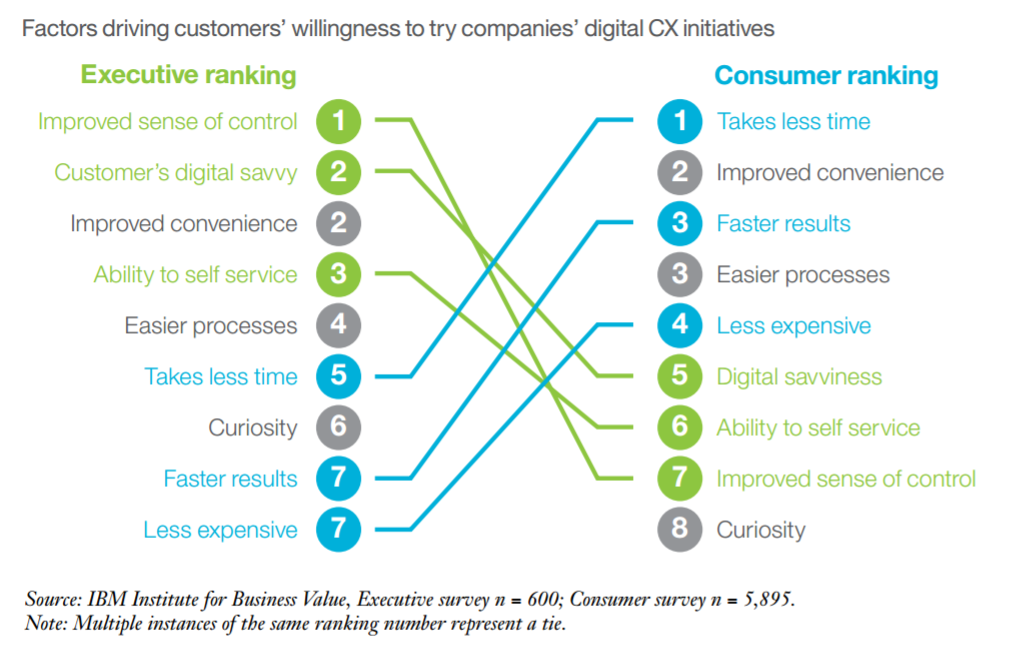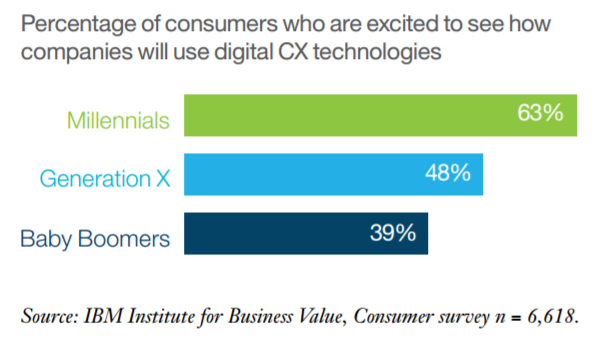The results of the study: the opinions of companies and customers about new technologies are strikingly different.

Almost every day, different companies report on new technologies. Virtual and augmented reality, mobile payments, smart systems for the home and virtual fitting rooms - all of these, according to the developers, are worthy of innovation that buyers should like. But a recent study by IBM showed that buyers have a different opinion, which often doesn’t coincide at all with the opinion of the developers of these new products.
More specifically, about 70% of buyers, to put it mildly, are not too impressed with the new achievements of digital brands and marketers. All of these displays in stores, virtual reality or voice commands, as many believe, are more likely a whim than really necessary products. Buyers need something else, but the opinion of the average consumer, as it turned out, is rarely heard.
The study in question was conducted by the IBM Institute for Business Value (IBV). IBM employees interviewed about 600 senior executives from various companies and more than 6,000 consumers for a wide variety of digital products.
')
The survey results are very interesting. Thus, according to this study (eng. "The Experience Revolution: Digital Disappointment — Why Some Consumers Aren't Fans"), consumers are often dissatisfied with new notions of manufacturers for the following reasons (ranked in order of importance):
• The product / service does not work as expected;
• inconvenient;
• It is possible to use, but difficult;
• Too confusing.
As a result, most consumers of fundamentally new products from the digital sphere feel frustrated and unhappy. According to Robert Schwartz, a project representative, the expectations of manufacturers and their customers are completely different. The leaders of the companies mentioned above were asked the following question: “For what reason can a consumer agree to try out a new product?”. The answers to this question were very different, but the results, as Schwartz says, are simply shocking.
For example, the management of companies supplying to the market any goods or services from the digital sphere believes that convenience is, first of all, important for consumers - this is the main factor. Then there are factors such as "improved control", "the ability to manage independently", etc. But consumer responses are completely different. For them, the following factors stand in the first place in the rating of factors that encourage them to work with a new product: “it takes less time”, “gives the result faster”, “simplified process”.

In addition, the results of the study showed that the leadership of these companies often overestimates the importance of new achievements.

As you can see, the difference between the opinions of executives of companies about their products and the opinions of customers about these same products is very significant. Who knows if enterprise managers will use information obtained by IBM to improve customer interaction. But the fact that you need to change ideas about your products is a fact.

The authors of the study recommend the following to companies:
• Create products and services based on consumer expectations, not personal opinion;
• Carefully analyze the needs of customers, their desires and opinions, based on various factors, and not just on the simplest criteria such as age;
• Put the simplicity and practicality of the product at the forefront. Innovation, as practice shows, does not make the client happy by itself;
• Develop a marketing strategy based on the data obtained from the analysis described above. First of all, consumers need to show what the product is important / attractive to the user, and not by itself.
Source: https://habr.com/ru/post/403491/
All Articles